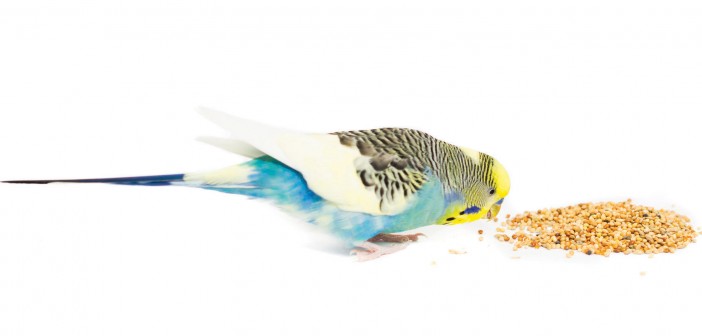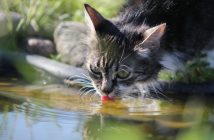The most commonly misunderstood aspect of pet bird care is nutrition, and every day at our veterinary practice we see dismal conditions due to poor diet.
There are some basic reasons why nutrition continues to be such a common problem. Many hold on to traditional, outdated nutritional ideas. Feed companies persist in producing nutritionally deficient diets, and pet stores continue to stock and recommend these diets.
A seed mix, even if it contains pellets and dehydrated fruit, seldom provides balanced nutrition. When offered a diet like this, birds pick and choose to eat what they like best, and they rarely pick the foods that provide a balanced diet. They are much like a child given the choice of spinach or ice cream to eat. We all know what the outcome of that would be.
Another contributing factor is the reluctance of birds to change their established, preferred eating habits. Even if the owner provides a good diet, there is no guarantee the bird will eat it. To convert a bird to a better diet takes time and persistence. The owner needs to train the bird to eat the right foods.
There are many species of birds kept as pets, and the diet for each varies. A baseline recommendation would be: at least 50% (or up to 75%) high-quality pellets such as Harrison’s Bird Diet or Lafeber’s; 25% low-fat grains; 20% dark green and yellow vegetables; 5% highly colored fruits. A bird eating this diet needs no additional vitamin supplementation.
I recommend a visit to an avian veterinarian to get more specific recommendations on nutrition for your particular species of bird. He or she can also help with the transition to the new diet. Additionally, a complete physical exam, lab work, and perhaps radiographs (x-rays) can help detect underlying health problems, which may require further modification of the diet. Birds are masters at concealing underlying disease conditions. Often these can only be detected with lab work and x-rays.
Proper nutrition is the key for birds to live long and healthy lives, so it is well worth the effort to help your bird eat right!
Suggested Foods for Different Avian Species
- Bird Food: Harrison’s Bird Diet or Lafeber’s
- Whole Grains: Spelt, oat groats, barley, steel-cut oats, wheat berry, buckwheat, flax seeds, chia seeds, hemp seeds
- Fresh Colorful Veggies: Jalapeno peppers, bell peppers, banana peppers, Serrano peppers, yams, sweet potatoes, broccoli, squash, zucchini, cucumber, pumpkin, bean sprouts, snow peas and snap peas
- Dark Leafy Greens: Kale, collard greens, mustard greens, turnip greens, chard, and endive
- Herbs: Dill, parsley, basil, chives and cilantro
- Berries: Blueberries, strawberries, raspberries and blackberries
- Fruits: Figs, kiwi, pomegranate, persimmons, mango, lychee, cactus fruit and passion fruit
- Nuts: Walnuts, almonds, pine nuts, macadamia nuts, hazelnuts and Brazil nuts
Foods NOT recommended for Birds
Flour-based foods (bread, tortillas, cookies, crackers, etc.), dried fruits, fruit juice, food sweetened with natural or artificial sweeteners, grapes, bananas, citrus fruits, fried foods and fatty animal meat. No raw beans. Cooked beans are acceptable for some large parrots. Grit is not needed for caged pet birds, however, can be beneficial for ground feeding birds eating tough fibrous foods (usually not a concern with pet birds). ABSOLUTELY NO PEANUTS!
By Douglas Folland, NVM, NABVP (Avian). Dr. Folland is owner and chief veterinarian at Parrish Creek Veterinary Clinic, serving Davis County. He is board certified as an avian specialist by the American Board of Veterinary Practitioners. At home, his family lives with chickens and a dog. His pet snake, Bob, and bird, Buckwheat, live at the clinic.




